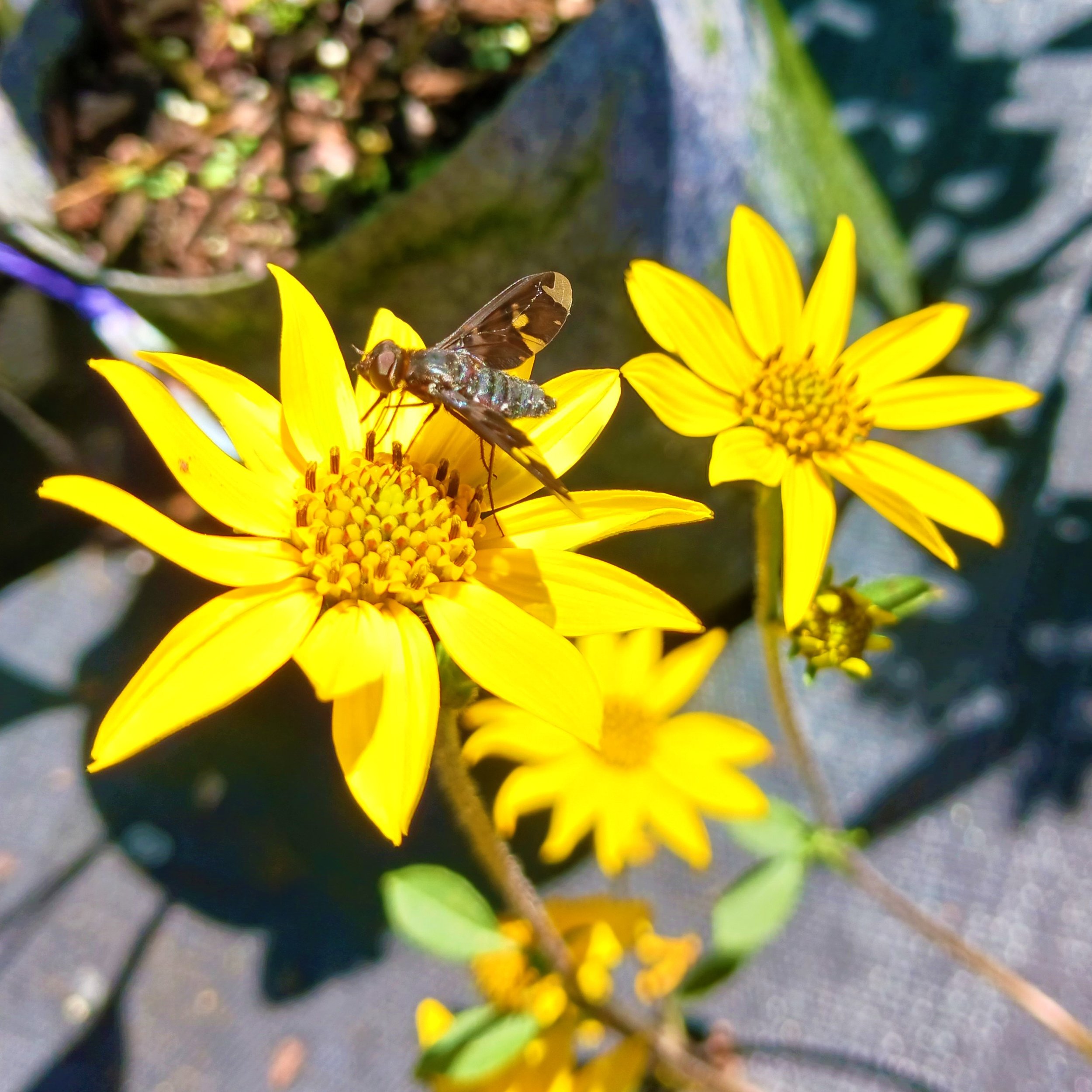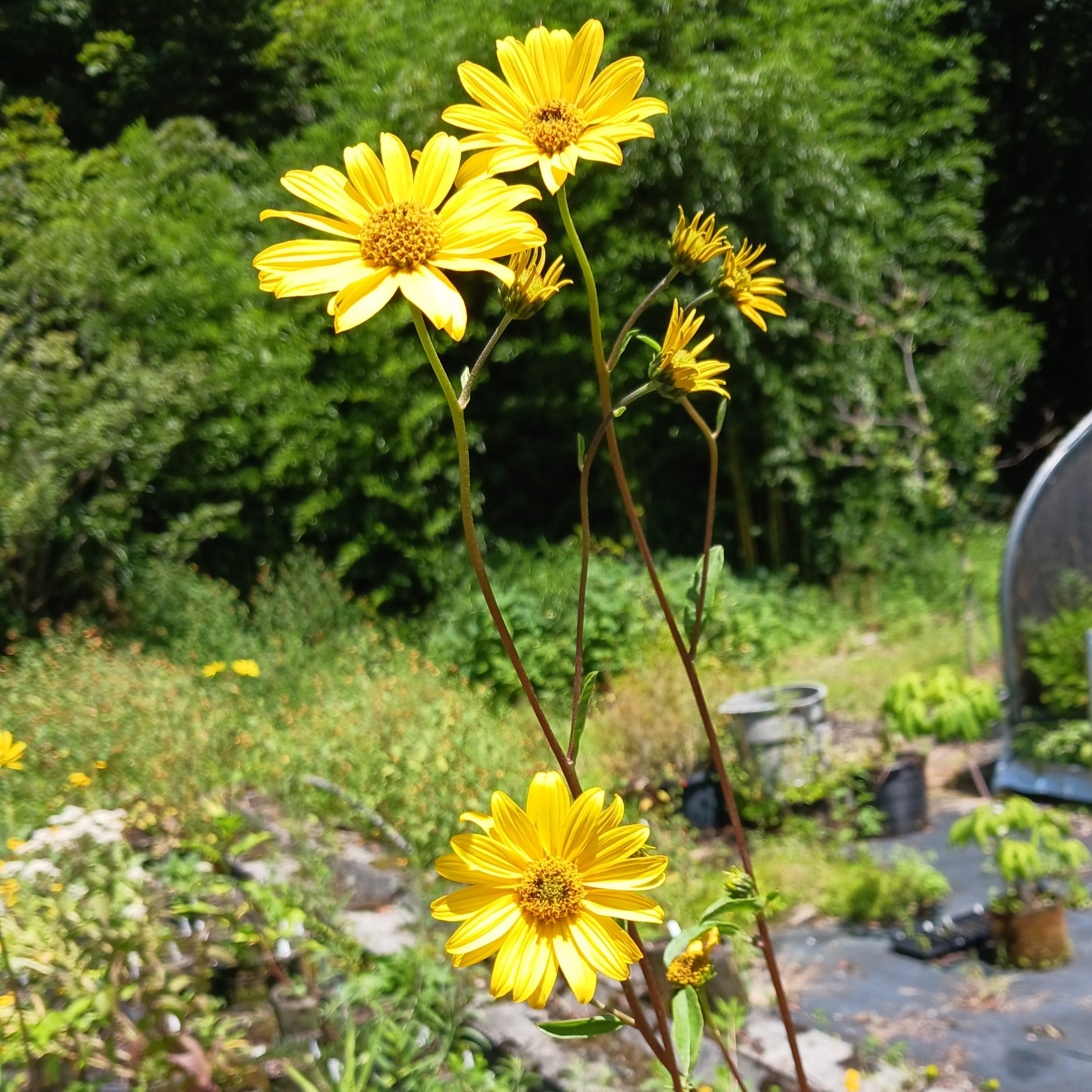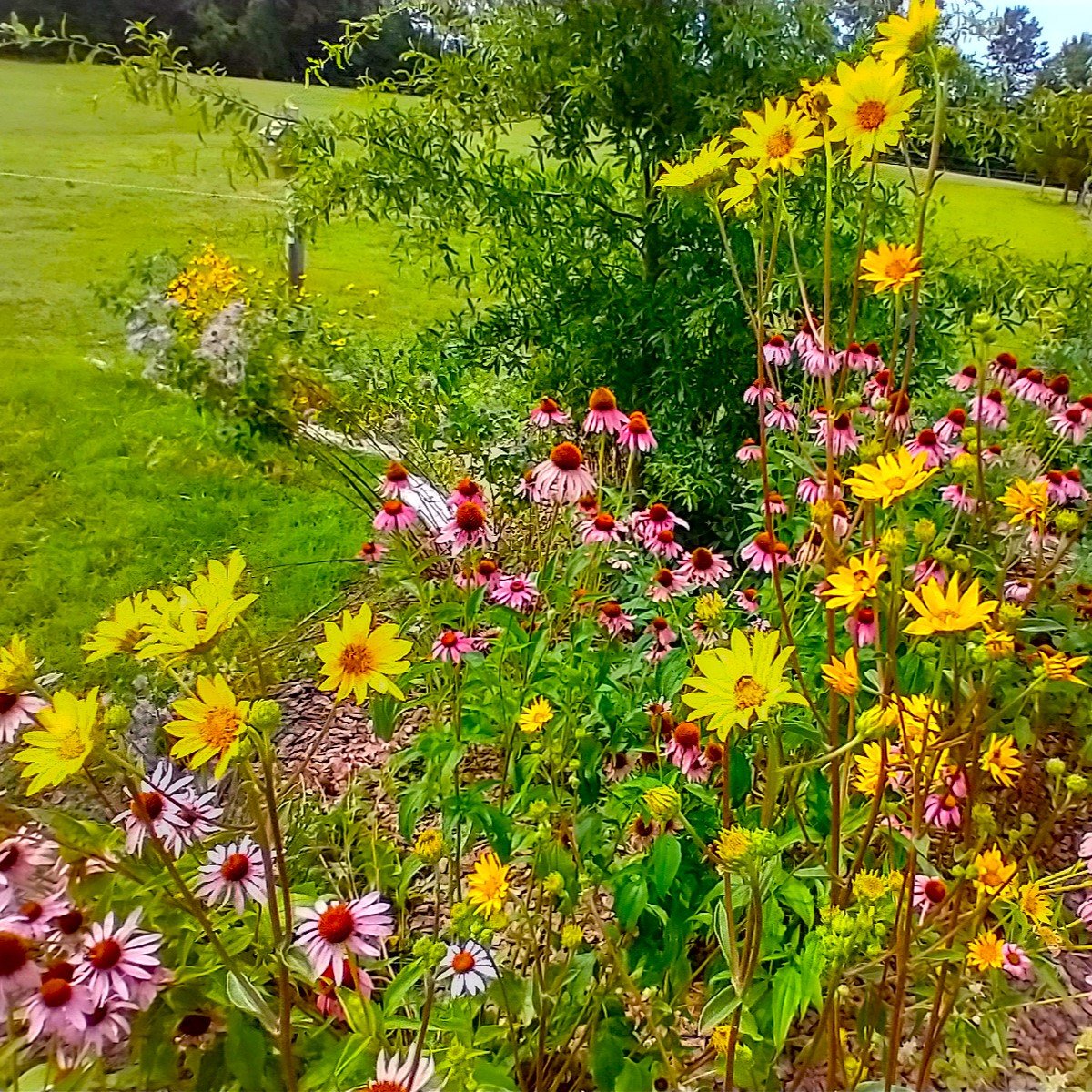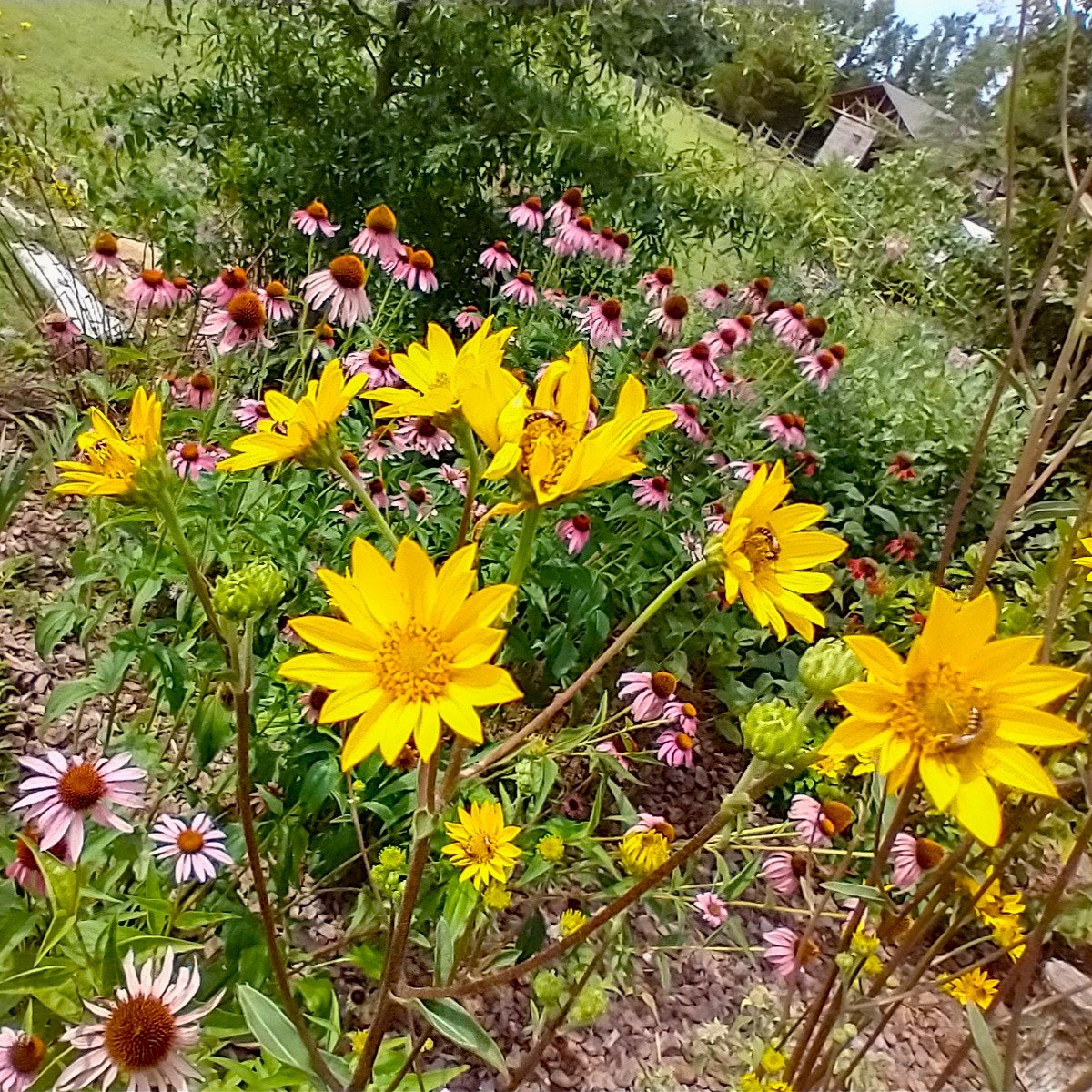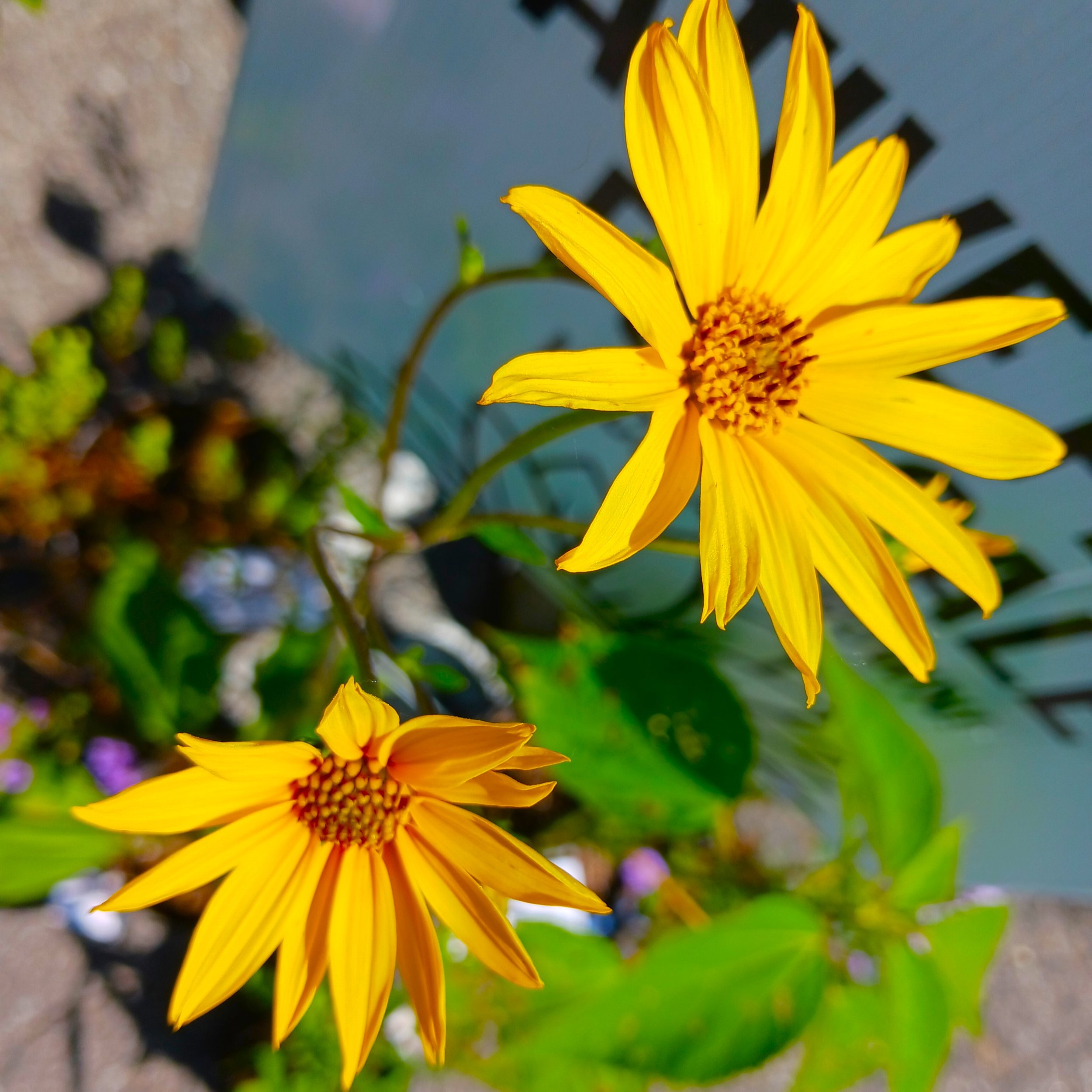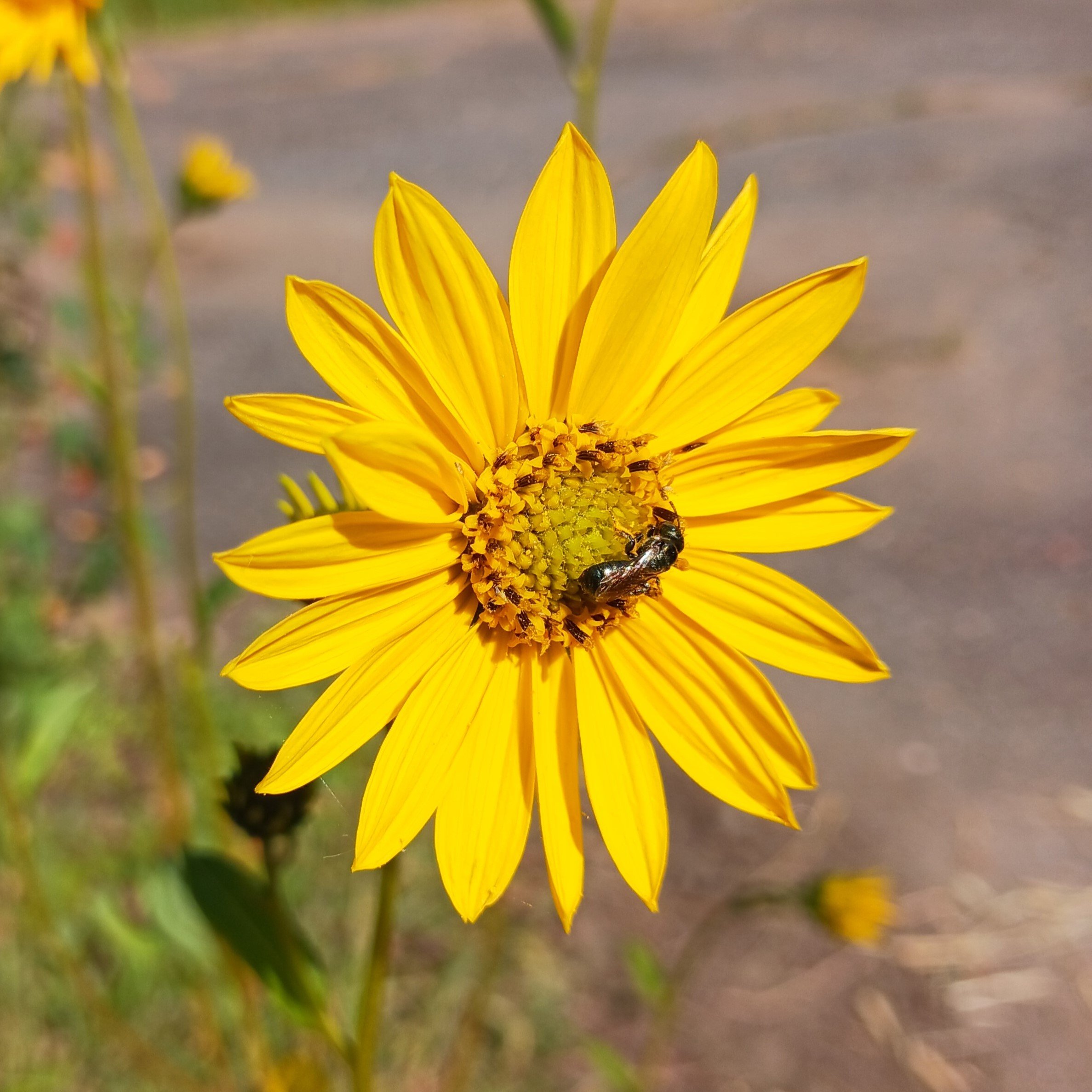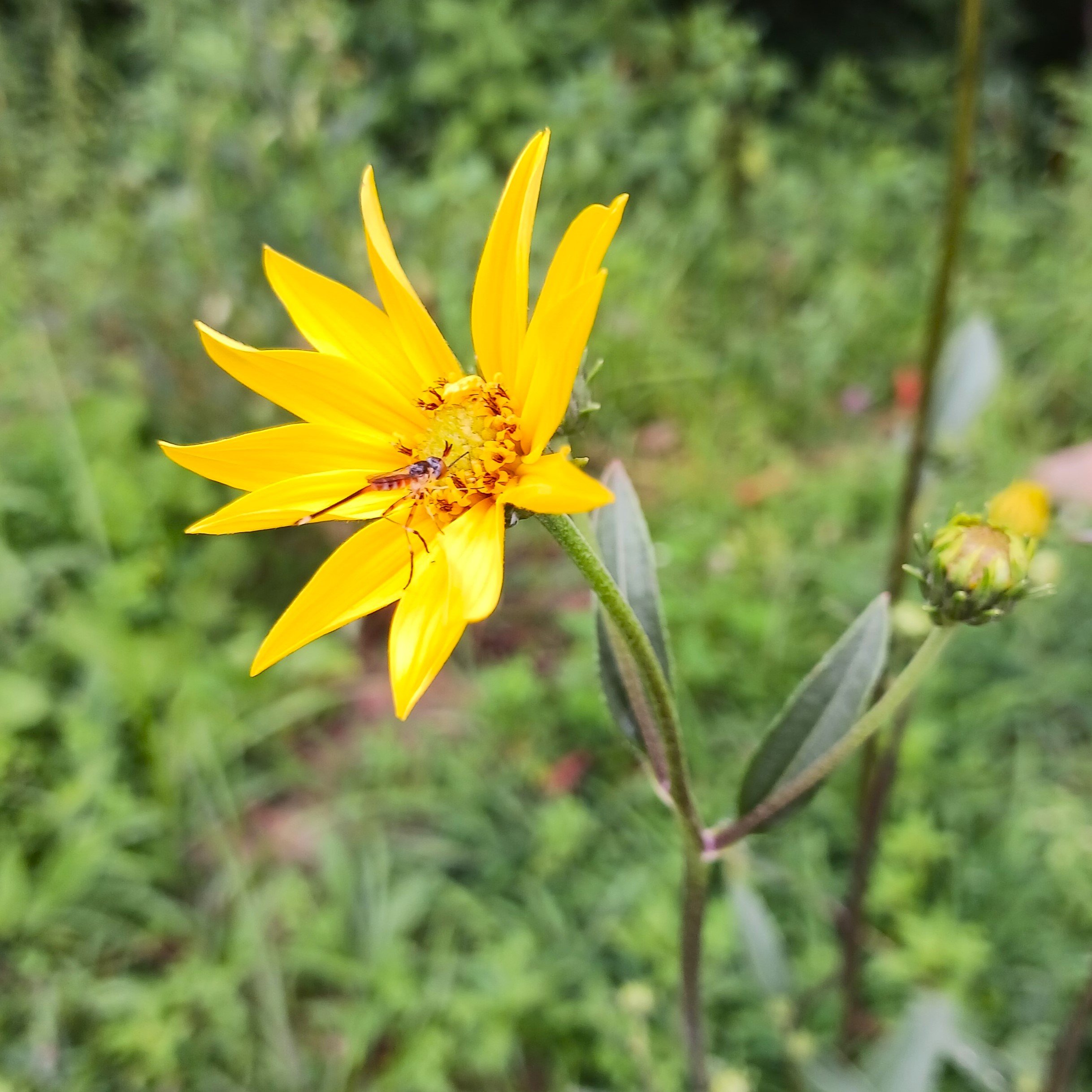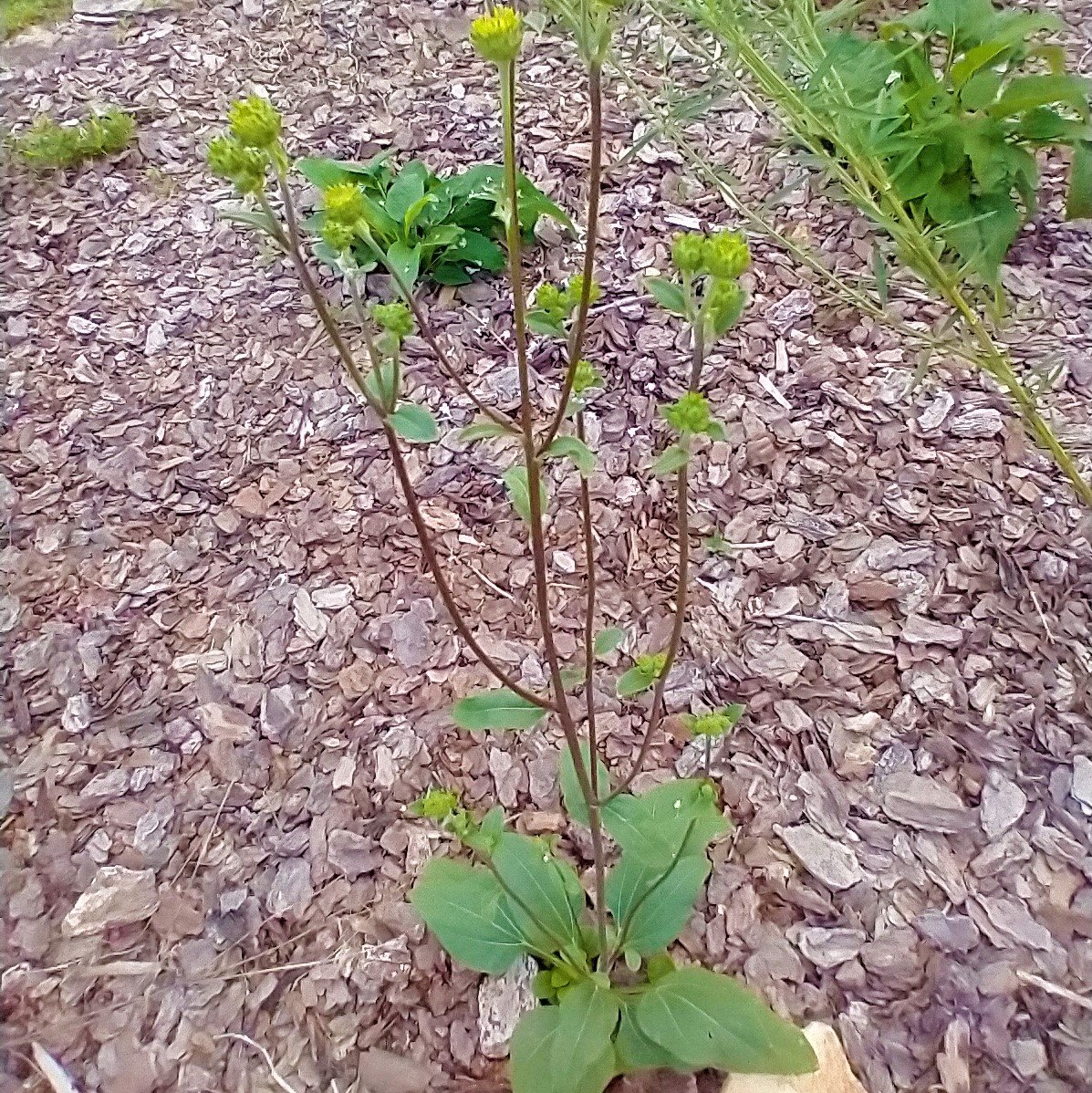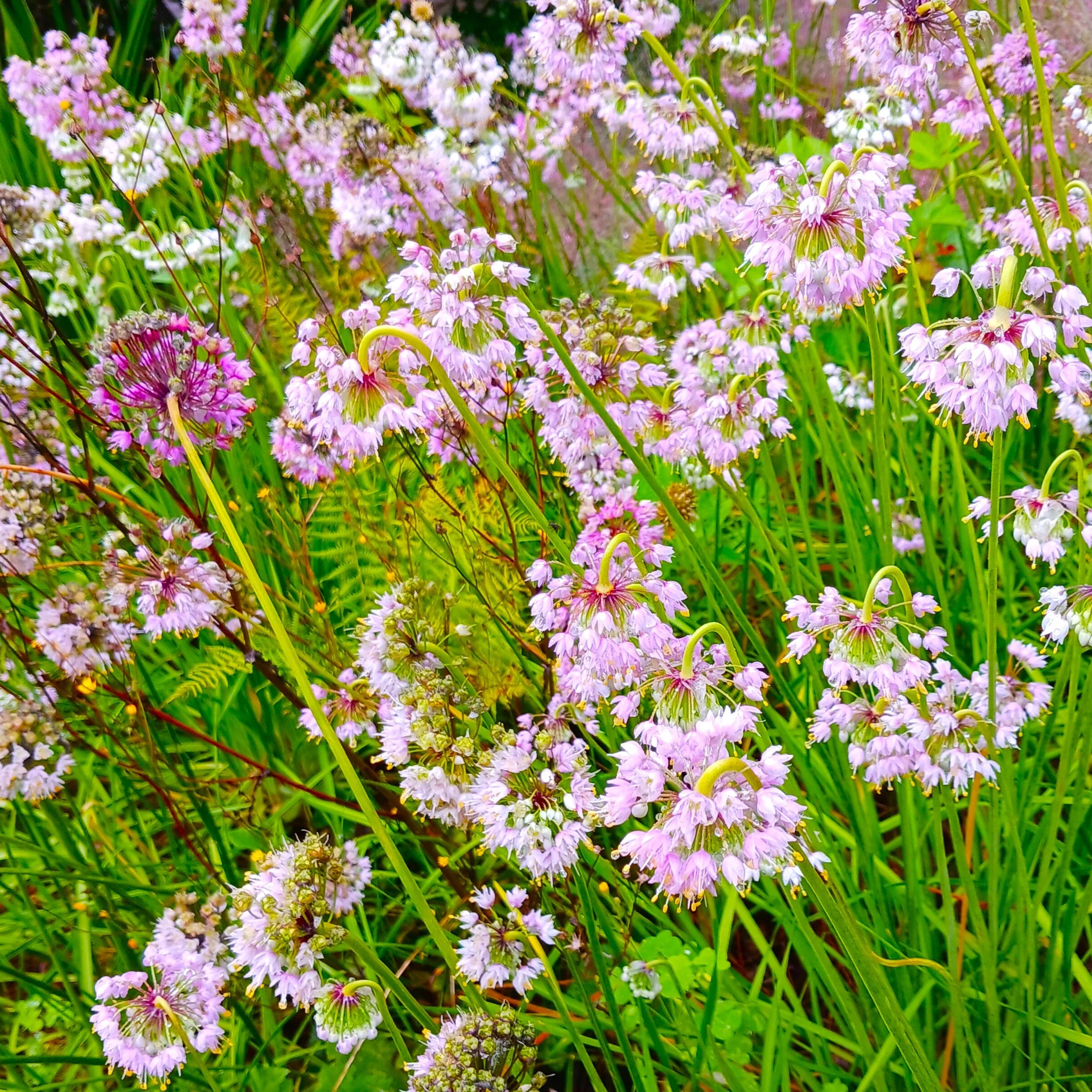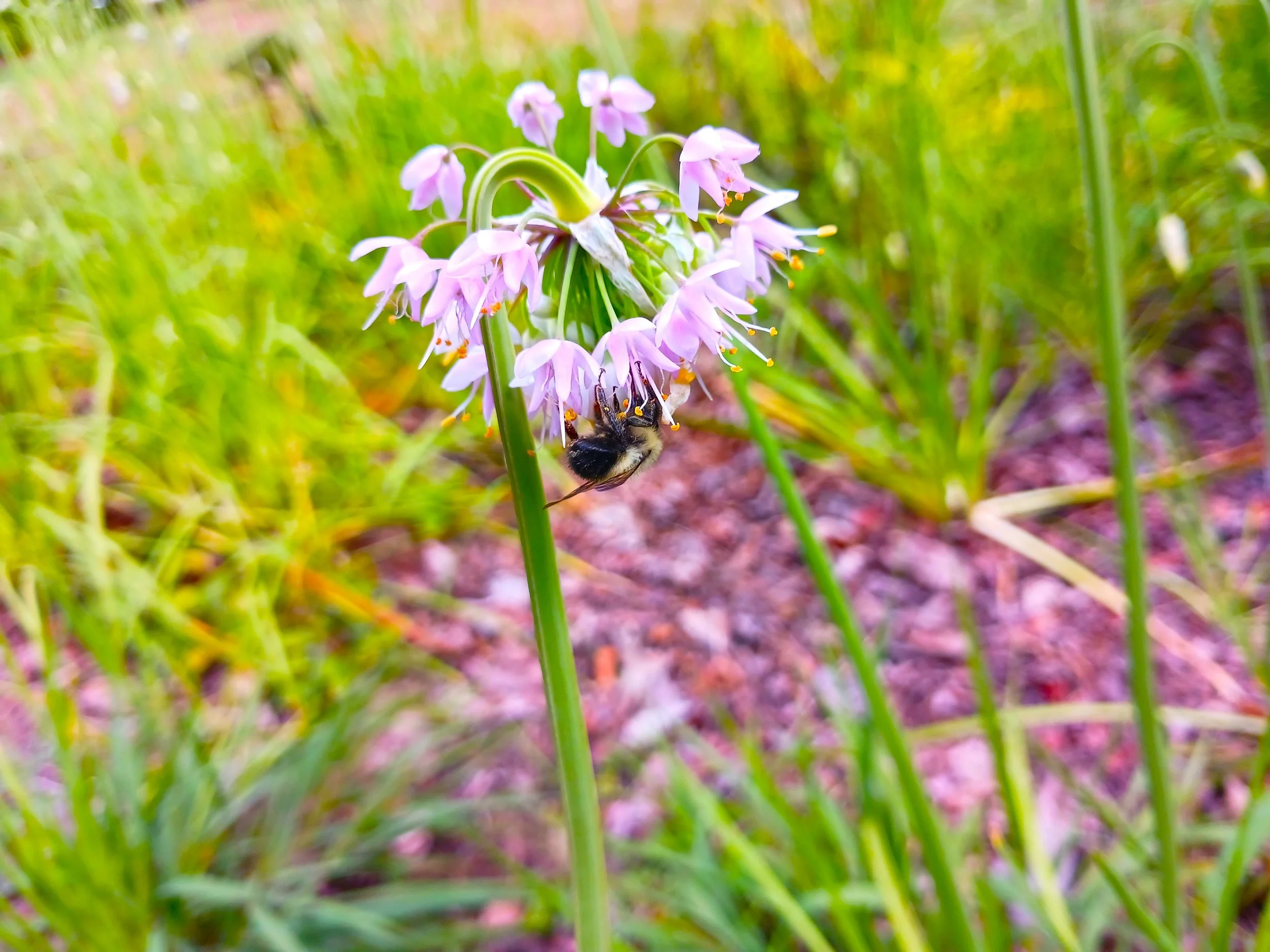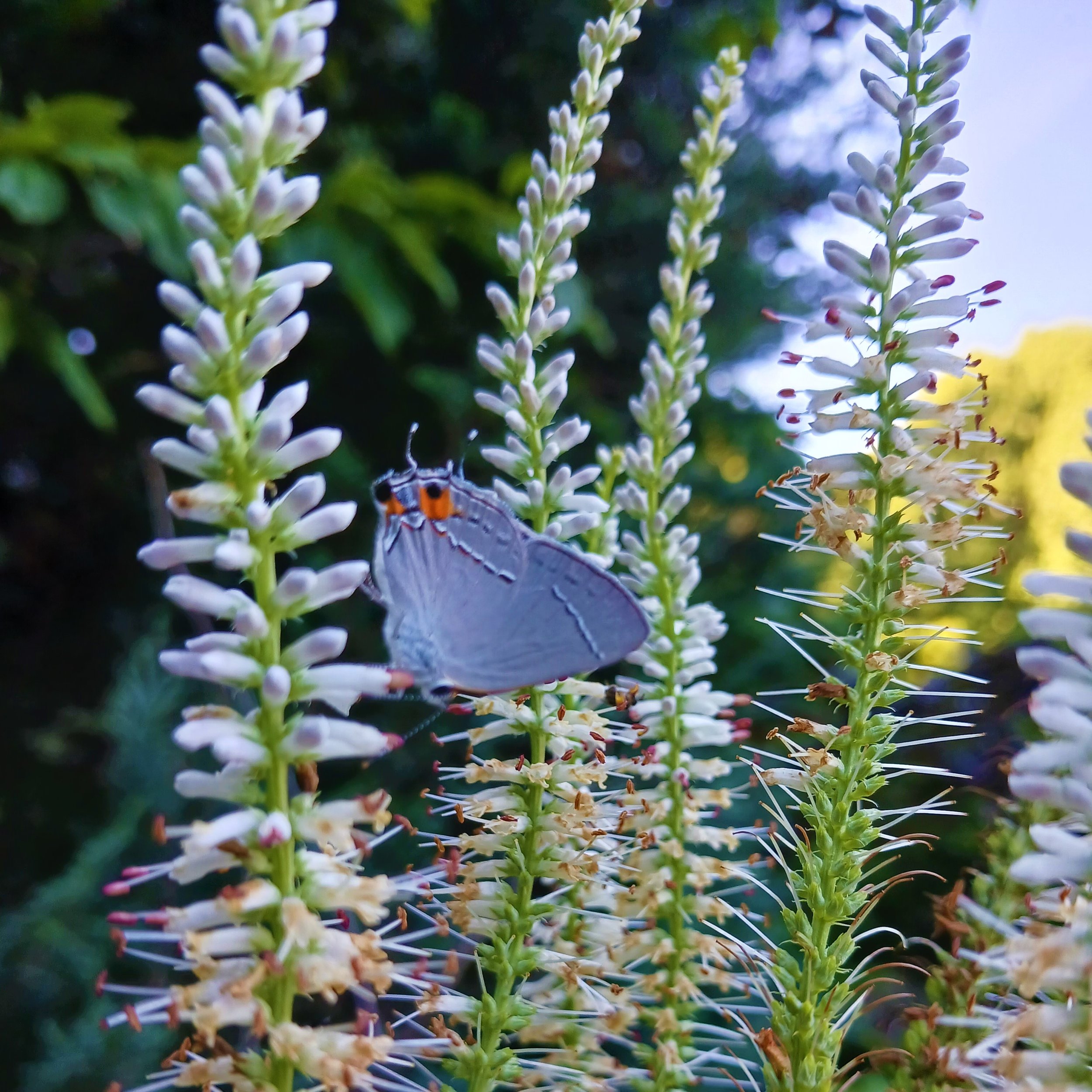Baptisia australis or Wild Blue Indigo is perhaps the best known of the native Baptisia. A member of the Pea family, these plants have symbiotic bacteria which fix nitrogen, helping it adapt to nutrient poor soils. The flowers are a striking indigo-blue color, blooming on tall racemes up to 4’ for several weeks April to June, and mature plants produce multiple stalks in a dense cluster resembling a woody shrub. The soft blue-green foliage is colorful even after the bloom period, and the seed pods turn black and make an attractive backdrop in fall, in addition to providing seed for birds. Seeds are also easy to harvest for replanting - but be aware that Baptisia species easily hybridize. Baptisia australis is extremely hardy when planted in at least 4 hours of direct sun - the more the better. It can tolerate a wide range from hard clay, dry sandy soils, slopes, rain gardens, although it will not tolerate boggy soils that stay wet - the symbiotic bacteria need some porosity in the soil. It is considered toxic to mammals, making it somewhat resistant to browse by deer and rabbits. This species can take a few years to fully establish and bloom after planting, but it is a long-lived perennial and will grow larger and more prolific over time given the right conditions. Best planted in full sun with well draining soils, but it can tolerate partial shade well.
Wildflowers of the Baptisia genus are some of the most popular native perennials for home gardens. They live for years and though herbaceous, resemble shrubs - but without any pruning necessary. They also are great for wildlife - the flowers are especially popular with bumblebees and other generalist bee species, but the seeds pods can also be a food source for insects and seed-eating songbirds. Baptisia are considered a keystone species in Bobwhite Quail habitats when given sufficient acreage, and they are a host plant for numerous species of Lepidoptera, including several rare moth species which only feed on Baptisia or a few related pea family native plants. Baptisia australis can also attract a number of attractive butterflies as a host plant for their caterpillars, including the Clouded Sulphur, Orange Sulphur, Wild Indigo Duskywing, and Zarucco Duskywing. There is a Baptisia species for every almost every kind of habitat in our region, and Baptisia australis can be complicated. All Baptisia can hybridize, and naturally occurring hybrids and subspecies are found in different areas across North America. Baptisia australis has also escaped cultivation and naturalized in a number of areas where it may not have occurred prior to the last century. However, there is some evidence that at least in the Appalachian Mountains of North Carolina, populations have existed prior to this species being widely used as a garden and landscape plant. Wild populations can also be found in the Blue Ridge Ecoregion into Virginia and West Virginia. We offer these species from nursery collected seed of individuals that perform well in our more rocky and clay mountain soils.
Pollinators: bumblebees, leafcutter bees, sweat bees, butterflies, beetles
Host Plant for Butterflies/Moths: 20+ species of Lepidoptera, including several species of Sulphur butterflies and Duskywing skipper butterflies
Dependent Species: Pococera baptisiella, Sitochroa dasconalis, weevils
Wildlife Value: Bobwhite Quail, Hummingbirds, Songbirds, Wood Warblers
Deer Resistance: Moderate for young plants, Very Good when established
Native Region: Appalachian Mountains
Seed Origin: USA
Light Recommendation: Full Sun, Part-sun
Soil Moisture Recommendation: Moist, Medium, Medium-Dry, Dry
USDA Zones: 3-9
States found in our region: AL, GA, MD, NC, PA, TN, VA, WV
Other states found: AR, IA, IL, IN, KS, MO, NE, NJ, OH, OK, TX





